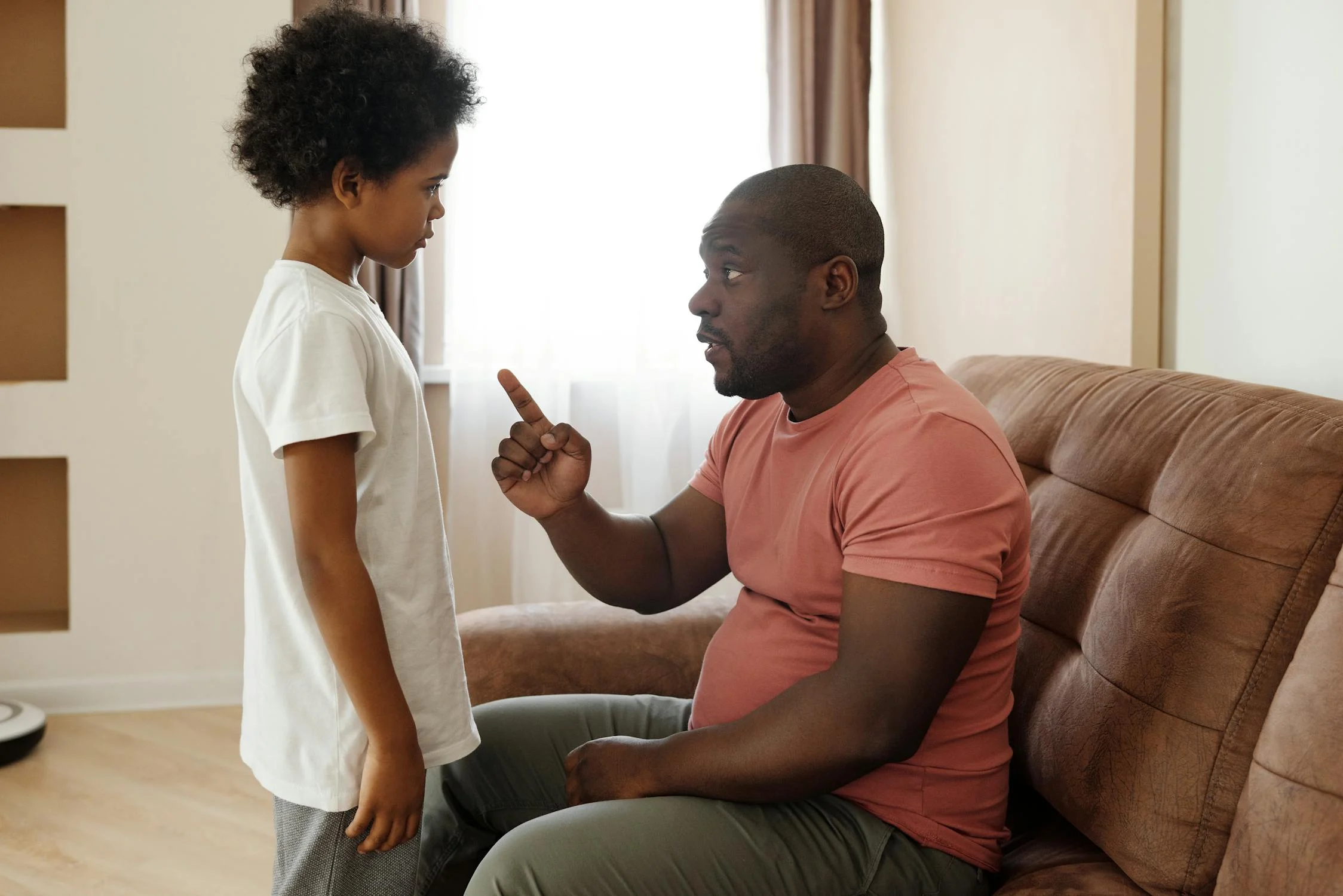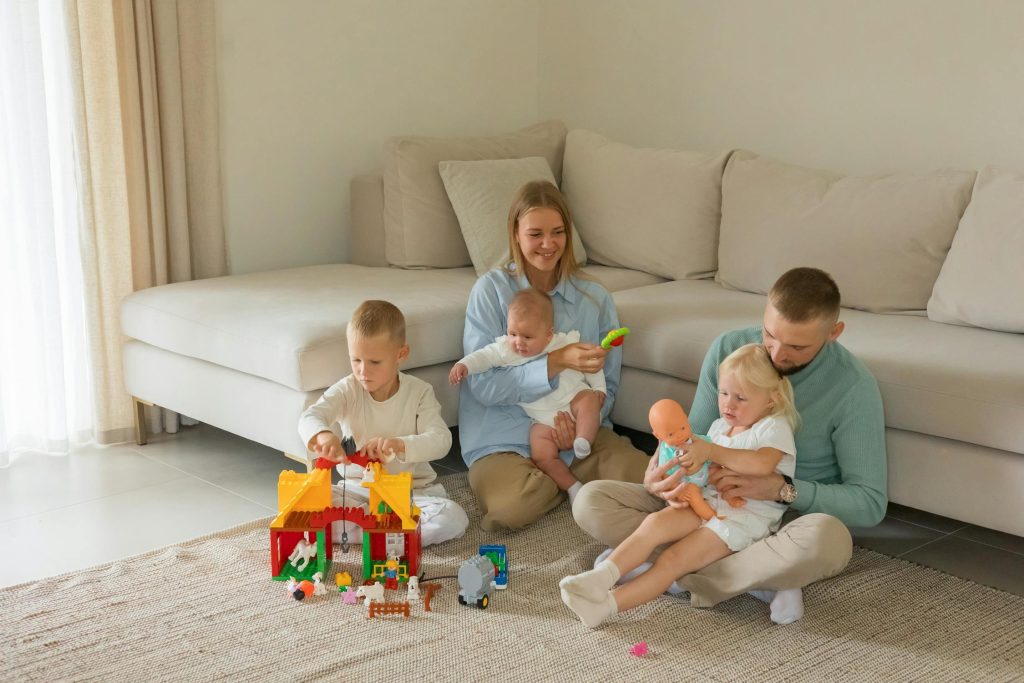A Phrase That Weighs More Than It Seems
“Back in my day, it was worse.” How many times have you heard—or even said—that phrase? It often pops up in conversations that seem harmless, usually with the intention of strengthening, motivating, or protecting someone. But behind this statement hides an emotional trap that can hurt, distance, and build walls between generations.
Minimizing your children’s suffering doesn’t make them stronger. On the contrary, it invalidates their feelings, creates distance, and leaves emotional scars that can echo throughout their lives.
Emotional Inheritance: The Invisible Weight Passed Between Generations
Our parents and grandparents grew up in a very different world. Strict rules, little space for emotional expression, love often tied to achievement, and the belief that “suck it up” was synonymous with strength. This emotional inheritance, passed down almost automatically, carries the false idea that if they survived adversity, their children should too—preferably without complaining.
But life isn’t a competition of pain. Each generation faces its own challenges. What used to be about surviving harsh conditions has today become pressure driven by emotional stress, constant overstimulation, information overload, social comparison, and existential anxiety. Dismissing this doesn’t build resilience—it creates loneliness.
When Love Comes Wrapped in Silence
Many parents believe they are protecting their children when they say things like:
-
“You don’t even know what a real problem is.”
-
“Back in my day, it was way worse.”
-
“That’s nonsense. You need to toughen up.”
These phrases, though common, end up teaching something very dangerous: that feeling emotions is not allowed. Children grow up learning to silence their pain, hide how they feel, and stop expecting comfort. And when pain isn’t validated in childhood, it tends to return even stronger in adulthood—disguised as low self-esteem, anxiety, depression, and an inability to form healthy connections.
Emotional Validation: The Superpower No One Talks About
If there’s one antidote to this disconnection, it’s called emotional validation. And no, validating isn’t about agreeing with everything or overprotecting. It simply means acknowledging that, for that person, the suffering is real.
It sounds like this:
— “I can see that this is really painful for you.”
— “It may not seem like a big deal to me, but if it hurts you, it matters.”
This builds bridges. It helps children feel seen, loved, and, most importantly, secure enough to face the world—knowing they have a safe place to return to.
Fragility Is Not Weakness
There is a huge misconception between fragility and weakness. When a child or teenager shows sadness, frustration, or fear, they are not being weak—they are being human. And the more they learn to handle these emotions in healthy ways, the stronger they actually become.
Contrary to what many past generations believed, ignoring pain doesn’t make it disappear. It just morphs, hides, and accumulates.
The Impact in Adulthood: Silences That Scream
Growing up hearing that your pain isn’t valid leaves deep wounds. As adults, these individuals often show patterns like:
-
Difficulty expressing emotions;
-
Fear of being judged when feeling vulnerable;
-
A tendency to dismiss their own problems and those of others;
-
Shallow or dysfunctional relationships;
-
An internal voice that constantly says, “You don’t have the right to feel this way.”
This cycle needs to be broken. And the good news? It’s never too late to start.
Conversations That Heal: Changing the Narrative

Changing this pattern doesn’t mean giving up on discipline, values, or boundaries. It simply means practicing love in a more empathetic and conscious way.
Here’s how to turn dismissive phrases into healing conversations:
| ❌ Words That Push Away | ✅ Words That Heal |
|---|---|
| “Back in my day, it was worse.” | “Tell me more about how you’re feeling.” |
| “You don’t know what real problems are.” | “I can imagine this feels really hard for you.” |
| “Stop being dramatic.” | “It seems like this upset you a lot. Want to talk about it?” |
| “Stop crying.” | “Crying doesn’t mean you’re weak—it’s how your body releases tension.” |
Small shifts in language can have a massive impact on your child’s emotional development—and also heal broken family patterns.
The False Protection That Creates Distance
Many parents believe that by toughening up their kids, they are preparing them for a cruel world. But here’s a powerful reflection: The world will already be harsh enough. Your child needs home to be a refuge, not another emotional battlefield.
Being heard, validated, and supported at home doesn’t make someone fragile. It gives them the emotional tools they need to navigate life with confidence, balance, and empathy.
Breaking the Cycle: An Act of Love
If you grew up hearing things like this, you may catch yourself repeating the same patterns without realizing it. And that’s okay. It doesn’t make you a bad parent or a bad person—just someone who carries emotional wounds.
The first step in breaking the cycle is asking yourself:
— “How did I feel when I heard this as a child?”
— “What did I wish someone had said to me instead?”
Turning that pain into awareness is how the healing begins.
A Generation That’s Changing Everything
There’s no doubt: the current generation of parents is more open to talking about mental health, building emotionally healthy relationships, and understanding that discipline doesn’t have to be based on fear.
Access to information, the normalization of therapy, and conversations about emotional intelligence are helping break patterns that once seemed unchangeable.
Comfort Is Not Spoiling
There’s a long-standing myth that offering comfort equals spoiling. That’s simply not true. Comforting means saying:
— “I love you even when you’re not okay.”
— “Your feelings matter, and I’m here for you.”
Discipline, boundaries, and responsibility can—and should—coexist with empathy and love.
Conclusion: Words Either Build or Destroy
“Back in my day, it was worse” is a phrase loaded with generations of unhealed pain. But you don’t have to pass that down. You can be the generation that transforms, that listens, that understands love also means allowing someone to feel sad, frustrated, imperfect—because that’s part of being human.
At the end of the day, it’s not just about protecting your child from the world. It’s about teaching them that the world can be a little less lonely when there’s someone willing to truly listen.

